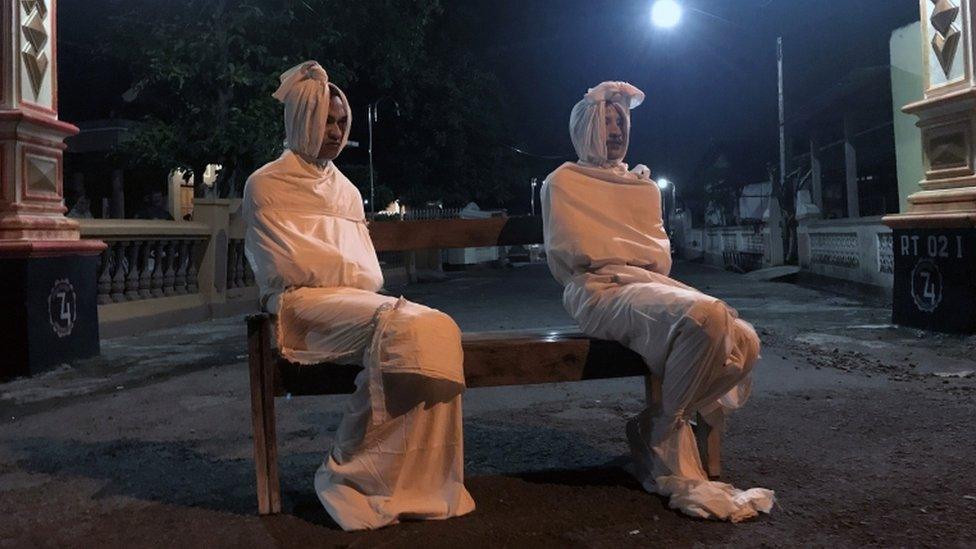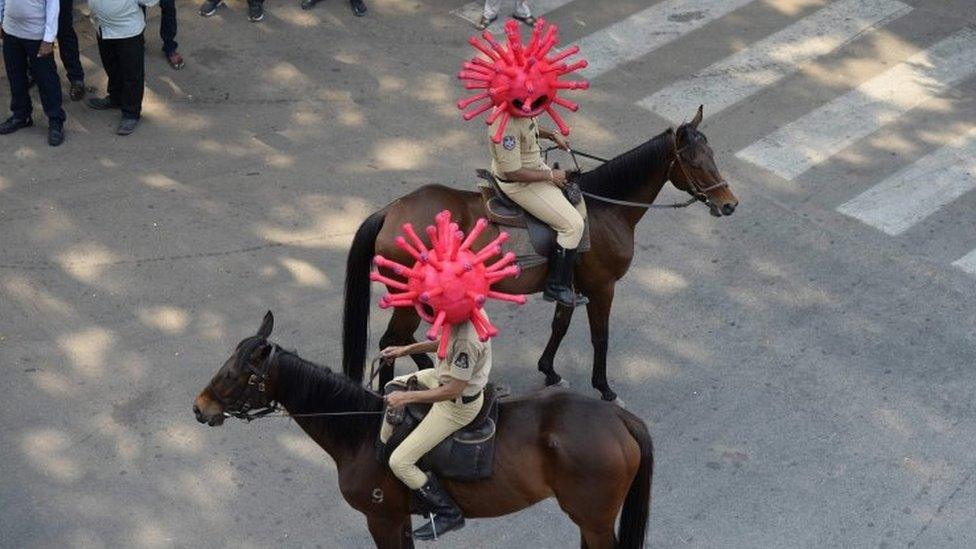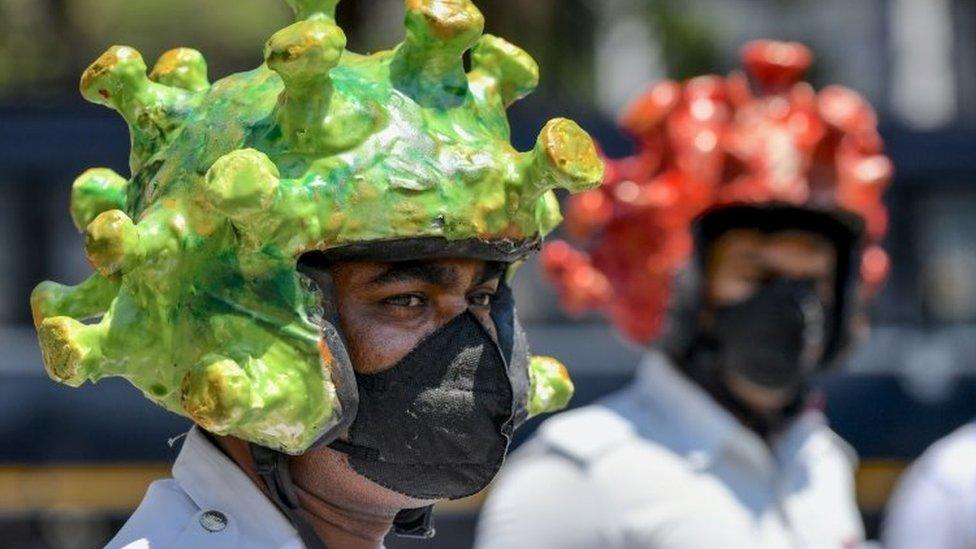Coronavirus: Indonesian village uses 'ghosts' for distancing patrols
- Published

Two volunteers, Deri Setyawan and Septian Febriyanto, seen in full costume
A village in Indonesia has reportedly taken to using volunteers dressed as ghosts to try to scare people into social distancing over the coronavirus.
Kepuh village, on Java Island, started deploying the patrols at night last month.
In Indonesian folklore, ghostly figures known as "pocong" are said to represent the trapped souls of the dead.
Indonesia so far has about 4,500 cases and 400 confirmed virus deaths, according to Johns Hopkins University.
But there are fears, according to experts, that the true scale of the infection across the country is much worse.
According to Reuters news agency staff who travelled to see the pocong in action, the unusual tactic initially had the opposite effect to that intended - with people coming out to try to spot the volunteers.
But locals say matters have improved since the team began deploying unexpectedly.
"Since the pocong appeared, parents and children have not left their homes," resident Karno Supadmo told Reuters. "And people will not gather or stay on the streets after evening prayers."
Anjar Panca, keeper at a local mosque, told the Jakarta Post the initiative worked, external because it reminded residents of the potential deadly effects of the disease.
The initiative was organised by the head of the village's youth group in co-ordination with local police.
"We wanted to be different and create a deterrent effect because pocong are spooky and scary," Anjar Pancaningtyas, head of the youth group, told Reuters.

The pocong campaign comes after this unusual virus-themed headwear was spotted on officials in India
Indonesia's president Joko Widodo has not yet implemented a national lockdown, despite fears the country's healthcare system could be overwhelmed without tougher measures.
"Residents still lack awareness about how to curb the spread of Covid-19 disease," the head of Kepuh village told Reuters. "They want to live like normal so it is very difficult for them to follow the instruction to stay at home."
Although unconventional, this is not the only unusual measure that has been used to try to raise awareness of the disease's dangers around the world.
In India, police have been spotted wearing virus-shaped helmets as a way to highlight the risks.


A SIMPLE GUIDE: How do I protect myself?
AVOIDING CONTACT: The rules on self-isolation and exercise
HOPE AND LOSS: Your coronavirus stories
VIDEO: The 20-second hand wash
